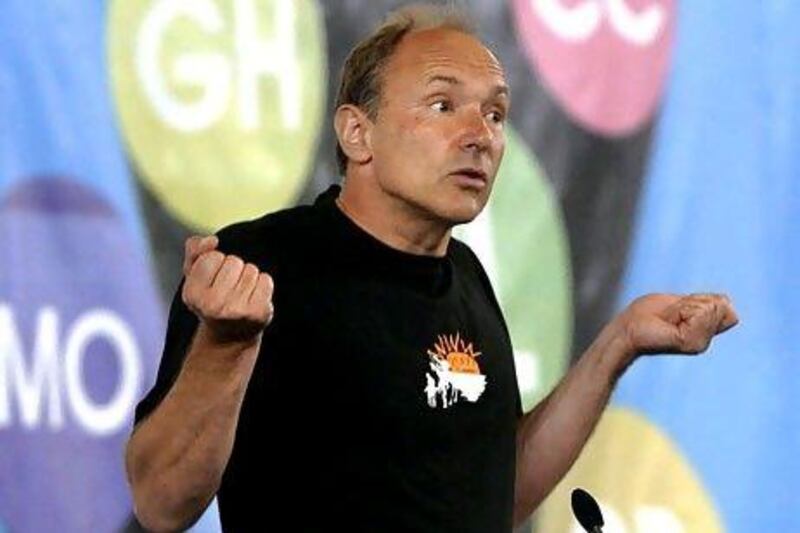Sir Tim Berners-Lee, the man who invented the world wide web, is looking for Middle East backers for a global charity to help boost internet use in the region.
The World Wide Web Foundation was launched by Sir Tim in 2008, with an aim to "empower all people" through the internet and use of mobile phones.
It won US$1 million (Dh3.67m) of funding from Vodafone Group to help develop mobile-phone training centres in Africa, and is now seeking similar partnerships in the Arab world. "We're very interested in working in the Middle East, and believe that there is incredible potential there," said Steve Bratt, the chief executive of the foundation.
"If we had a funder that was interested in supporting our work, we have the tools and skills to help get something going very quickly. So we'll be looking into that over the next year."
Mr Bratt said the charity's mobile entrepreneurs project in Ghana, which is run in conjunction with Vodafone, would be especially valuable in the Arab world.
The Ghana initiative helps local entrepreneurs use mobile technology to provide both an income stream and services to the local community.
Projects under development include a SMS and mobile web service for jobseekers, and a portal offering information about local pharmacies and the availability of prescription drugs.
Mr Bratt said the charity was seeking funding to launch similar programmes in the Arab world.
"I'm absolutely convinced that mobile entrepreneur training programmes would be very successful there," he said. "Telcos are natural funders for what we are doing. We also have grants from governments and from non-profit foundations."
The charity also promotes freedom of information on the web - and Mr Bratt said there was an opportunity for regional governments to embrace this in the wake of the Arab Spring.
"Egypt and Tunisia would be wonderful places to work on these things if the governments there were interested," he said. "Transparency and accountability are critical to the governance and [gaining the] trust of the people, and preventing another Arab Spring."
The Middle East has mixed figures on internet use, according to data from the International Telecommunication Union. In Egypt, only 26.7 per cent of residents use the internet, compared with 78 per cent in the UAE.
Part of the mandate of the foundation is to encourage more people to use the internet through initiatives such as "voice browsing", where people access information via the web by speaking into mobile handsets.
Encouraging access to the internet through more locally relevant content can have tangible economic benefits, Mr Bratt said.
"If access to information allows a farmer to quadruple his or her agricultural production, to get a 25 per cent higher price on what they sell, to feed more people in their community, this is absolutely critical," he said. "The web can't pour a drink for you, but it can teach you how to drill more effective wells that are more sustainable."





